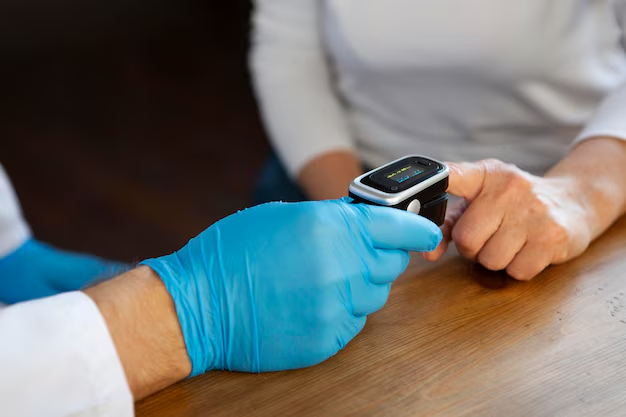Your Guide to How Long Do Diabetics Live After Amputations
What You Get:
Free Guide
Free, helpful information about Diabetes FAQ and related How Long Do Diabetics Live After Amputations topics.
Helpful Information
Get clear and easy-to-understand details about How Long Do Diabetics Live After Amputations topics and resources.
Personalized Offers
Answer a few optional questions to receive offers or information related to Diabetes FAQ. The survey is optional and not required to access your free guide.
Life Expectancy After Amputation for Diabetics: What to Expect
Living with diabetes presents numerous challenges, and, for some, it can become a life-altering journey that involves complications such as peripheral artery disease and neuropathy. These complications can necessitate amputations, which are most commonly performed on the lower extremities, like feet or legs. A pressing question for many diabetics facing such procedures is: What does life afterward look like in terms of longevity and quality?
Understanding Amputation and Its Impact
Amputations are typically viewed as a last resort when other treatments have failed. For those with diabetes, it's often due to prolonged poor circulation and infection that becomes irreparable. While it's a daunting proposition, for many, amputation can be a pathway to better health or even save their lives.
In terms of life expectancy, various studies suggest that the five-year survival rate following a major amputation can range from 49% to 74%. However, these numbers can vary significantly based on several factors, including the overall health of the individual, age, quality of diabetes management, and access to healthcare facilities. It's crucial to note that while amputation might reduce mobility, it can also eliminate the source of infection, potentially leading to a healthier, albeit different, lifestyle post-surgery.
Improving Life After Amputation
The journey doesn't end with surgery. Embracing a positive lifestyle and adhering strictly to medical advice are critical. Here are ways to potentially extend life expectancy and improve quality of life:
- Rigorous diabetes management: Monitoring blood glucose levels, following a balanced diet, and regular exercise can control the disease's progression.
- Physical rehabilitation: Engaging in a rehabilitation program facilitates mobility, helping enhance independence.
- Emotional support: Mental health is as crucial as physical healing; seeking counseling or joining support groups can provide much-needed emotional stability.
- Prosthetic solutions: Advanced prosthetics can help regain mobility and improve life quality.
Financial Support and Additional Resources
Amputation, subsequent healthcare, and rehabilitation can be financially taxing. Numerous assistance programs are available to help alleviate some of the burdens, offering support and solutions for a healthier future post-amputation.
- Government Aid Programs: Federal and state programs like Medicare and Medicaid provide coverage for prosthetics, therapy, and ongoing diabetes management. Veterans may also have access to specific programs tailored to their needs.
- Financial Assistance: Charities and non-profit organizations offer help with medical costs, including prosthetics and rehabilitation services. Look for local or national diabetic associations.
- Debt Relief Options: Organizations and financial advisors can guide debt management and relief options for those overwhelmed by medical bills.
- Credit Card Solutions: Using medical-specific credit options can offer low-interest plans for healthcare expenditures.
- Educational Opportunities: The government and non-profits provide educational grants and scholarships tailored to adults with disabilities, aiding in personal or professional development.
The road to recovery and a fulfilling life after amputation despite diabetes is indeed complex, but resources and support abound to assist in this journey. With proper care, guidance, and determination, individuals can achieve a quality life, leveraging financial and educational aids to overcome life hurdles.
Key Programs and Solutions for Financial Support:
- 🏥 Medicare & Medicaid: Coverage for medical necessities, including prosthetics.
- 🎗️ Diabetes Charities: Offer medical costs assistance and support groups.
- 💼 Debt Relief Counseling: Financial advisors for easing medical-related debts.
- 💳 Medical Credit Plans: Low-interest credit plans for healthcare spending.
- 🎓 Educational Grants: Scholarships for educational pursuits targeted at adults with disabilities.
What You Get:
Free Diabetes FAQ Guide
Free, helpful information about How Long Do Diabetics Live After Amputations and related resources.

Helpful Information
Get clear, easy-to-understand details about How Long Do Diabetics Live After Amputations topics.

Optional Personalized Offers
Answer a few optional questions to see offers or information related to Diabetes FAQ. Participation is not required to get your free guide.


